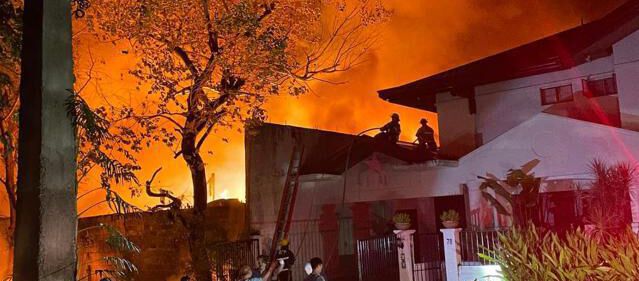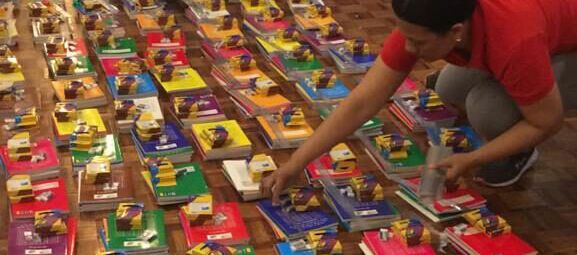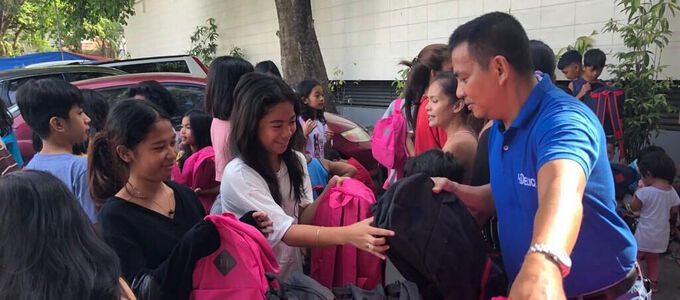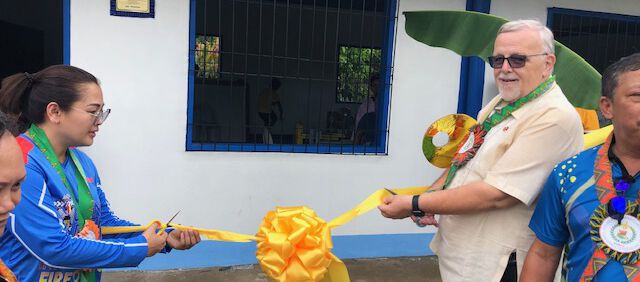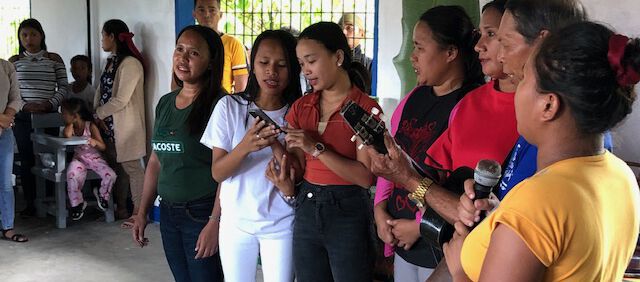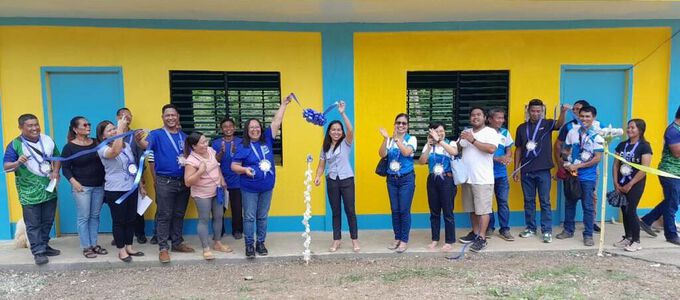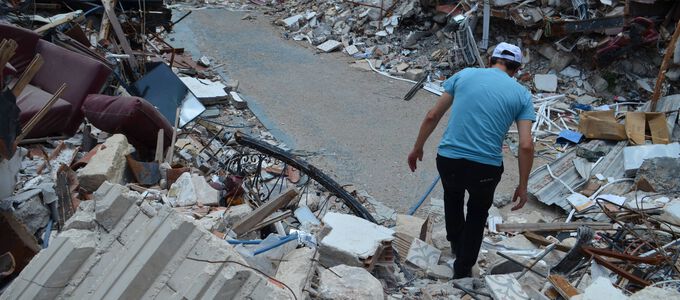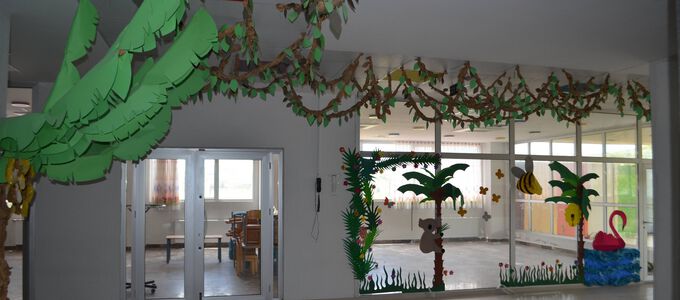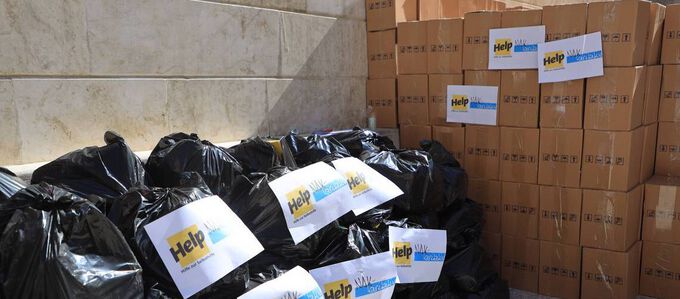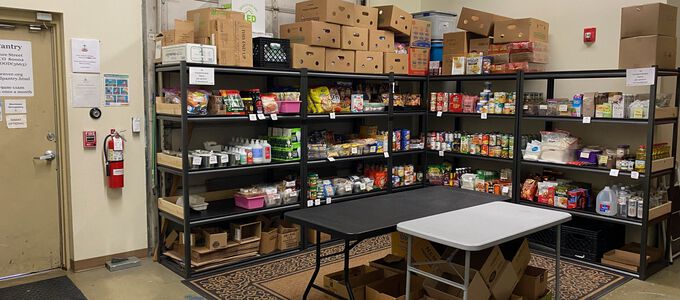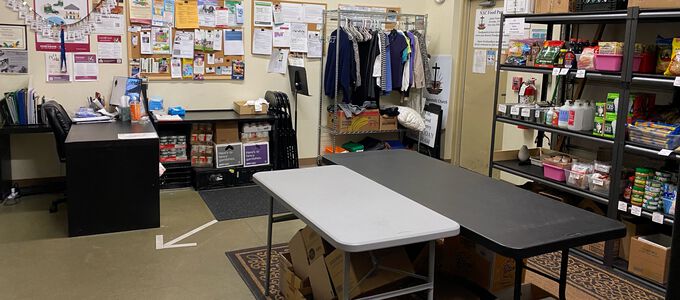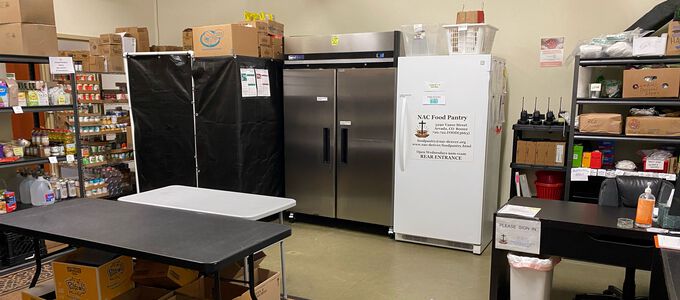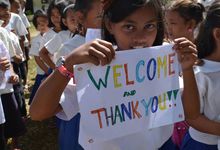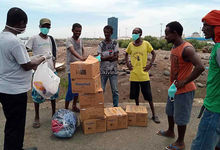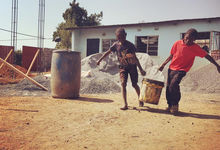Helpers at work (1): when the need is acute
Poverty, inflation, and the consequences of the COVID-19 pandemic: the thirteen aid agencies of the New Apostolic Church have had a lot on their hands in the year 2023. This is the story of their successes and challenges. To start off our miniseries, we will look at how these agencies provide help in acute need.
Flames leap up the walls of the houses, lighting up the darkness and chasing people out onto the streets. Fires are blazing throughout the whole city quarter of Dulo Barcelona, Philippines. Some 300 people look on in stunned silence as all of their possessions, their homes, surrender to the flames. Employees of NAC SEA Relief, who have their offices in the immediate vicinity, are shocked at first. But they immediately begin to help. They quickly set up emergency accommodations and provide people with the essentials.
Even small catastrophes demand help
“Fortunately, there were no other major calamities like typhoons or earthquakes,” relates Mabelle Ferrer-Bagtas of NAC SEA Relief, the aid agency of the New Apostolic Church South East Asia. The private donations and funds that come from the network of New Apostolic relief organisations therefore went to smaller, acute projects: “Often, donors commission us to handle specific situations on their behalf,” relates Mabelle Bagtas. “For example, we were entrusted with the task of organising medical care for a young cancer patient.”
The aid agency NAC SEA Relief, which is mainly active in the Philippines, concentrates on providing disaster aid and promoting education in rural areas.
On the ground when wars and earthquakes occur
Germany’s NAK-karitativ is committed to helping in many acute projects. After the earthquakes in Turkey and Syria, the aid organisation focused on education in order to give affected children and young people a small sense of normality again. And in the wars in South Sudan and Ukraine, NAK-karitativ was there to help with the bare essentials: warm food was provided in schools and kindergartens, and emergency aid packages were distributed to the population.
The aid organisation, founded in 2001 as a support association for charitable projects, is primarily active in West, Central, and South Africa, but also in Europe. In addition to emergency aid projects, it is currently working on projects for food security, increasing income, improving health, establishing biogas, and education.
Dealing with challenges
The emergency aid projects presented staff with some challenges: “We have many donations that were pledged for a specified purpose and which we are only allowed to use for that purpose, so in many cases our hands are tied,”There are currently few options to help, especially in the Ukraine war. And then there is the balancing act between long-term and acute assistance. Inflation makes products more and more expensive, making longer-term projects more costly in turn.
The relief organisation known as “re Charitable Ministry” from the USA is confronted with similar challenges. Although the organisation is not currently dealing with an acute emergency, as was the case when it was founded after Hurricane Katrina in August 2005, the pantry project for the needy is putting more and more strain on re Charitable's account due to rising inflation. In addition, inflation also puts a strain on donors, mainly brothers and sisters from the USA, who donate less as a result. Nevertheless, the aid organisation also has its successes to report. The Denver Metro Food Pantry is a store for people in need. There people can find fresh and long-lasting food for little money. Volunteers from the congregations stand in the shop and sell. “One of this year’s biggest successes was the Denver Metro Food Pantry being chosen by Food Bank of the Rockies to receive extra grant funding twice. Extra funding allows our Denver volunteer team to provide more fresh foods for those in need,” reports correspondent Kim Kolb.
You can find further information about the aid agencies of the New Apostolic Church around the world, including contact information and opportunities to support them, on their websites:
- human aktiv (Southern Germany)
- Kumea (East Africa)
- Masakhe Foundation (Southern Africa)
- NAC Foreign Extension (Canada)
- NAC SEA Relief Fund (South East Asia)
- NACare (Australia)
- NACRO (Zambia, Malawi, Zimbabwe)
- NAK-Diakonia (Switzerland)
- NAK-Humanitas (Switzerland)
- NAK-karitativ (Germany)
- re Charitable Ministry (USA)
- Ser Prójimo (Argentina)
- Stichting Corantijn (Netherlands)
It is a little corner of South America that speaks Dutch: Suriname is still struggling with the consequences of COVID-19. The next part of this mini-series reports on current aid projects, both here and elsewhere.
Article info
Author:
Date:
Keywords:
Katrin Löwen
16.10.2023
Aid agencies,
Social commitment,
International


